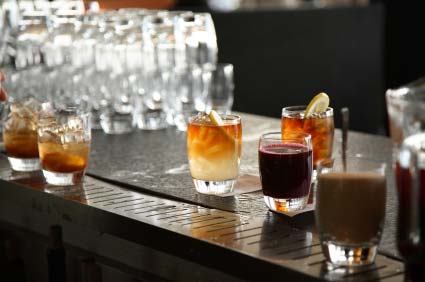Across the United States, alcoholic beverages represent a big, lucrative slice of the revenue pie for untold thousands of restaurant, bar, hotel and store owners. Total U.S. alcohol sales approach $100 billion per year, and restaurants with a Texas liquor license can earn up to 70 percent or more of their income from sales of beer, wine, spirits and mixed drinks.
In most of Texas, the story is much the same. On a per-capita basis, Texans do not drink quite as much as their counterparts in northern states like Wisconsin, but local consumption statistics are still pretty impressive. According to recently available data, the average Texan drinks nearly 25 gallons of beer and more than one gallon of 80-proof liquor – the equivalent of nearly 100 shots or mixed drinks – per year. Wine continues to be a popular choice for a wide swathe of the drinking population as well.
A Closer Look at the Geography of Alcohol Sales in Texas
The Texas Alcoholic Beverage Commission keeps close track of where and how alcohol is sold across the state. Unsurprisingly, Texas’s biggest counties – Harris, Travis, Dallas, Tarrant and Bexar – accounted for a huge share of the state’s alcohol revenue. It helps that these places boast stadiums, universities, entertainment venues and other traditional draws for merry-making tourists and locals who look forward to a night out on the town. On a per-capita basis, Austin and the rest of Travis County – home of the University of Texas and the undisputed live-music capital of the state – do better than any other part of Texas.
That said, retailers, restaurateurs and bar owners without easy access to entertainment venues or student populations can easily leverage a Texas beer license to boost their bottom lines. In rural and suburban areas, establishments that serve alcoholic beverages on-premises persist at far lower densities than in established urban centers with robust nightlife cultures. This creates opportunities for retailers who sell bottled alcoholic beverages for off-premises consumption as well as restaurant and bar owners who have yet to tap into this lucrative slice of the market.
Consumption Habits Throughout the Year
Even in areas far from sporting venues or nightlife districts, both off-license retailers and on-premises licensees that take advantage of Texas license services can benefit from special events and holidays that are traditionally associated with alcohol consumption. For instance, fall weekends find collegiate and professional football fans connecting with their favorite teams over alcoholic beverages. Some holidays, including Cinco de Mayo and the Fourth of July, are closely associated with the consumption of specific beverage brands. Others, including Thanksgiving and Christmas, are noted for the consumption of a wide variety of alcoholic beverages. During the holiday season, consumers are often willing to pay a premium for high-end brands of wine, spirits and even beer.
The fact that specific types of alcohol are associated with specific times of year is a powerful argument for alcohol sales at restaurants, retail outlets and other venues. During the warm months, savvy operators draw buyers’ attention to refreshing, often cold beverages like light beer, white wine and wine coolers. During the cool months, red wines, spirits and dark beers might be emphasized. The holiday season brings a range of specialty drinks, including eggnog and spiced beers.
A Recession-Proof Business
Although Texas’s economy has weathered the recent turmoil better than most, local business owners always have to worry about unexpected shocks or slowdowns. Fortunately, alcoholic beverages are a recession-proof source of revenue for thousands of retailers, bar owners, hoteliers and restaurateurs across the state. For many reasons, sales of alcohol remain steady or even increase during periods of economic weakness. Due to their ability to offer a lower cost per drink, owners of liquor stores and other off-license sellers do particularly well during soft periods.
Overall, there are several clear revenue benefits of selling alcoholic beverages in Texas. From small-town restaurant owners to big-city event promoters, the state’s business owners are taking advantage.

